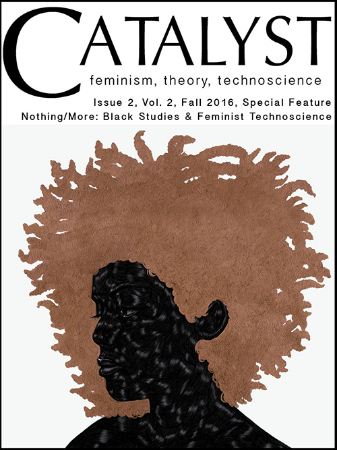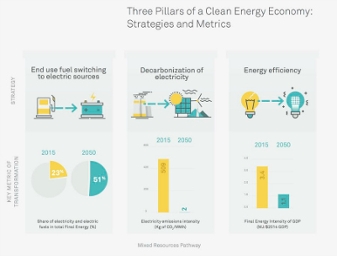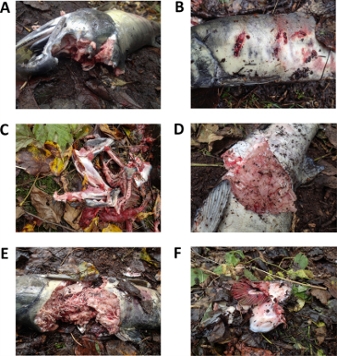Investments needed for clean energy, gerrymandering and redistricting, the benefits of self-driving cars, monitoring bear populations through saliva found on partially-consumed salmon carcasses, the prevalence of microagressions on campus, the politics of water rights in California, mobilizing the youth vote – these are just some of the diverse topics faculty in the social sciences at UC Santa Cruz are researching.
Anthropology:
Melissa Caldwell
“How and why do people engage with social problems and injustices?” asks Melissa Caldwell in her new book, Living Faithfully in an Unjust World: Compassionate Care in Russia (University of California Press, 2016). “What does it mean to care for or to love another person, especially a complete stranger?” To find answers, Caldwell turned to Russia’s faith-based communities where she met people caring for some of Moscow’s most vulnerable populations.
Mayanthi Fernando
Liberté, égalité, féminisme?
“As recent gatherings of anti-racism and anti-Islamophobia activists in France have shown, minority and Muslim women are taking the lead in the fight against racial profiling, police brutality, mass incarceration, and a general crackdown on Muslims’ civil liberties” writes Mayanthi Fernando in Dissent Magazine. Fernando shows that despite the misleading opinion that Islam is oppressive to women, it is actually Muslim women who are playing a prominent role in these political movements.
Danilyn Rutherford
Danilyn Rutherford shows how affect theory can help cultural anthropologists understand the worlds they study. Rutherford argues that cultural anthropologists operate “with a set of tacit assumptions about what makes people tick,” she writes. “Studies deploying affect theory open these tacit assumptions to scrutiny and possible revision.”
Economics:
George Bulman and Rob Fairlie
To better understand the connection between parental resources and college attendance you might start by looking at lottery winners. In a new working paper published through the National Bureau of Economic Research, George Bulman and Rob Fairlie explored how resources and school decisions correlate by examining more than 1 million children of state lottery winners. Bulman and Fairlie matched federal tax records from parents who won the lottery to the financial aid records of college students, factoring in time and size of jackpots.
Vox.com also wrote about the study.
Nirvikar Singh
The Other One Percent: Indians in America (Oxford University Press, 2016) is the newest book from Nirvikar Singh. Singh explores how a population from a developing nation with low human capital became the most-educated and highest-income group in the world's most advanced nation.
Ajay Shenoy
“Even in a democracy as mature as the United States, political parties exert remarkably precise control over the outcomes of elections,” writes Ajay Shenoy in his working paper about how political parties can exert control by strategically targeting resources and choosing to win one election at the cost of another.
"They are willing to accept this trade-off when the outcome of the election determines control of a key institution that can itself make elections less competitive," he says. Ph.D. candidate Dahyeon Jeong is co-author.
Shenoy was also interviewed by WalletHub about this research. In the interview, Shenoy emphasized problems with the current U.S. voting structure and procedures, as well as pointing to issues around governance, gerrymandering, and ways to make elections fairer.
Environmental Studies:
Tim Duane
Reducing the risks posed by climate change is both economically and technically achievable, saysa new report by the Risky Business Project. Tim Duane was lead author of From Risk to Return: Investing in a Clean Energy Economy, a comprehensive study that examines how American businesses can respond to the risks climate change pose to the American economy through clean energy investments. The report shows that to avoid the worst economic impact of climate change, an average of $320 billion a year in additional private sector investment will be needed to build a clean energy environment.
Gregory Gilbert
Professor and Chair Gregory Gilbert of the Department of Environmental Studies published two studies, one about the relationships between species, disease ecology, and biodiversity–Disease Relationships and another study about subtropical trees and their associated fungi. Gilbert’s lab brings together environmental scholars interested in applying evolutionary ecology to solving environmental problems, within an interdisciplinary environment of natural and social scientists.
Karen Holl
Karen Holl published apaper in the Journal of Applied Ecology reporting on the seedling recruitment after a decade in different tropical forest restoration treatments. Holl and her co-authors found that planting patches or "islands" of trees was similarly effective to planting large areas with trees in accelerating the pace of tropical forest recovery, which could be a cost-effective way to restore tropical forests. The Natural History of Ecological Restoration blog also featured the study.
Adam Millard-Ball
Adam Millard-Ball published a journal article about pedestrians and self-driving cars. Several online publications, including The Atlantic’s “City Lab” blog, wrote about the study. Millard-Ball uses game theory to show how pedestrians will benefit from self-driving vehicles. Currently, “pedestrians routinely play the game of chicken,” he writes. Even in a marked crosswalk, pedestrians cannot be certain that a driver will yield.
“Crossing the street, even at a marked although unsignalized crosswalk, requires an implicit, instantaneous probability calculation: what are the odds of survival?”
But because autonomous vehicles will be programmed to obey the rules of the road, cars will automatically stop for pedestrians in crosswalks. Pedestrian travel will become safer and more attractive. Ball also explores potential consequences, including increased jaywalking and children playing in the streets.
Others media outlets such as Science Blog, Planet Citizen, the Register in the U.K. and the IEEE Spectrum reported on Millard-Ball’s study.
Barry Nickel
Barry Nickel co-authored a study about the caribou population in the Rockies. The study involved tracking the caribou location through GPS collars, gene variability, and other spatial data variables like topography, climate, and vegetation to study the conservation efforts of this species listed as endangered, threatened, or under concern.
Stacy Philpott
Stacy Philpott co-authored a study with Assistant Specialist in Agroecology Peter Bichier and graduate student Monika Egerer about the biodiversity of lady beetles in urban community gardens - a bug species that naturally controls crop pests, mildew, and disease. Philpott and her team studied 19 community gardens in Santa Clara, Santa Cruz, and Monterey to explore the relationship between insect biodiversity, the environmental ecosystem, and the urban landscape.
“This study demonstrates that for urban growers, a perspective beyond the garden gate to the surrounding landscape may be the first step when strategizing local habitat management for lady beetle communities that provide a suite of ecosystem services for food cultivation in urban agriculture.”
Chris Wilmers
Chris Wilmers was co-author on a study that collected bear saliva samples from partially-consumed Pacific salmon carcasses as a way to monitor bear population in Alaska. From the saliva swabs the researchers were able to conduct non-invasive genetic sampling as a way to monitor the bear populations. They measured scat samples as well.
Latin American and Latino Studies:
Peggy Estrada
Peggy Estrada discussed her research on English Language Learners (ELLs) in Education week, specifically the barriers that ELLs face when they enter middle school and high school. Estrada talks about the barriers that ELLs face when they enter middle school and high school. She says that these students’ “opportunity to learn is affected in a variety of ways… it’s restricted by less access to core content, less access to the full curriculum, higher performing peers, and often increased placement in remedial instruction.” These students therefore become "linguistically and academically isolated,” making success at the secondary level very challenging.
Psychology:
Christy Byrd
For the past year, Christy Byrd implemented a mobile app to track student experiences of microaggressions—the subtle ways assumptions and attitudes based on race, sexual orientation, or gender are communicated in everyday conversation. Her initial findings captured press attention and were featured in the conservative opinion and commentary website, Heat Street, then republished on the website for Fox News, and picked up by other media outlets.
Shelly Grabe
Shelly Grabe’s new book, Narrating a Psychology of Resistance: Voices of the Compañeras in Nicaragua (Oxford University Press, 2016) explores the psychology of resistance and change in the women’s Movimiento in Nicaragua. Bridging activism and academic research, Grabe examines the psychological processes that emerge out of oppression and injustice, and how women actualized a political and social justice movement against these regimes.
“There is an urgent need to move beyond empowerment to focus on a “psychology of resistance” that captures the ways in which women develop their subjectivity through critical awareness and challenge power-based structural constraints as they become citizen subjects acting collectively to resist and rethink structures of domination,” Grabe writes.
Campbell Leaper
Campbell Leaper, Chair of the Department of Psychology, was interviewed for a BuzzFeed article about women and sexism in light of the presidential election results.
Leaper was also quoted in an article in the online magazine Slate on how to talk with children about the president-elect. Leaper has published research showing girls who learn about sexism at a young age are better able to respond proactively when they encounter it later.
Steve Whittaker
Steve Whittaker published a new book, The Science of Managing Our Digital Stuff (MIT Press, 2016). Whittaker analyzes how people keep, organize, and reuse their personal information. He calls attention to an often overlooked dynamic of personal information management: the person who organizes their information is also the one who retrieves it. He writes, “Curation therefore can be seen as a special kind of communication: a solipsistic interaction between a person and him- or herself at two different times: the time of storage and the time of retrieval.”
Whittaker also discusses “pilers and filers” in the Financial Times article, “There’s magic in mess: why you should embrace a disorderly desk.” The piece references Whittaker’s 2001 research with AT&T labs and his new book about messiness and productivity. Filers, workers who use a formal organization structure for their papers, tend to cope less well than pilers, workers who let papers build up on their desk.
Politics:
Mark Fathi Massoud
How do scholars conduct field research in conflict zones and authoritarian states? Ask Mark Fathi Massoud, who spent extensive time in Sudan at a time when the country was emerging from what was Africa's longest civil war.
In the 2016 volume of the Annual Review of Law and Social Science, Massoud discusses how research is carried out in countries impacted by conflict and authoritarian rule. From scholars who studied transnational justice in Sierra Leone, minority rights in Singapore, or environmental disputes in China, Massoud shares the diverse and distinct challenges and risks that researchers face in the field.
“Prominent discussions of methods will...allow fieldwork-based studies of law in fragile states to have greater impact on the global diversity and outlook of sociolegal studies, and the kinds of research questions that can be asked and answered [about] law's power,” Massoud writes.
Ruth Langridge
Ruth Langridge is lead author of a comprehensive study about the management of California’s groundwater system, a critical resource that supplies 30 percent of the state’s total water supply. Prepared under contract with the The State Water Resources Control Board, Langridge explores the governance, sustainability, and management issues of the current regulation model. News Deeply, an award-winning news information startup interviewed Langridge about the study.
Langridge also explored collaborative and participatory governance of groundwater management in California’s Pajaro Valley. “We find that people excluded from decision-making in the Pajaro Valley are small farmers, the Hispanic/Latino community, and the general public (i.e., absentee landowners, rural residents, and urban dwellers),” she writes. “Reasons for exclusion posited by interviewees include group unawareness, limited trust, and lack of resources.”
Langridge also authored a blog post about water rights.
Daniel Wirls
The San Francisco Chroniclepublished an op-ed by Daniel Wirls calling for the U.S. to eliminate all land-based nuclear missiles, one leg of the outdated nuclear triad. “The U.S. cannot afford to develop every possible military technology and build every possible weapon,” Wirls writes. He adds, “and nuclear weapons are relics compared with the panoply of digital and robotic wonders on which the Pentagon is spending hundreds of billions of dollars.”
Sociology:
James Doucet-Battle
The sequencing of the human genome is transforming the fields of science, medicine, technology, and health. But at what social cost? Exploring this critical turning point is James Doucet-Battle who examines how this juncture is impacting the African American community, a group subjected to a long and complicated history of scientific racism and health disparities.
His most recent article in Catalyst examines the case of Henrietta Lacks, a poor African American woman who in 1951 had her cells taken without her knowledge to establish the immortal HeLa cell line. Medical researchers continue to use the HeLa cell line in their research while her descendants have no health insurance. Doucet-Battle argues that the HeLa cell line symbolizes the history of slavery and black female reproductive rights (or lack thereof) and how the concept of matriarch, a term traditionally used in social sciences, is now used by the medical community to also describe Lacks.
“In perpetual consequence as an ascriptive matriarch having no real ability to effect change in the social order, her descendants live in relative poverty,” writes Doucet-Battle about Lacks. “She, and most black ‘matriarchs’ in the U.S. struggle against a downward intergenerational spiral of health and economic disparities, kinship instability, and their disparate intersections with social, economic, and medical justice,” he adds.
Rebecca London
Director of the new Student Success Evaluation and Research Center, Rebecca London examined the link between chronic absenteeism and student performance among students in grades K-12. London found that there are reverberating negative effects on their school performance - students who are chronically absent in one year are much more likely to remain so in the subsequent year. She also discovered that chronic absenteeism can indicate underlying problems in the family that make it hard for children to get to school, which suggests a multi-pronged intervention approach. The findings from this research were also summarized in an invited memo to the California State Board of Education to inform how absenteeism might be included as part of the State’s new education accountability system.
Jenny Reardon
Nature published a Letter to the Editor written by Jenny Reardon and Kate Darling of the Science and Justice Research Center and fellow co-founders of the Science FARE (Feminist Anti-Racist Equity) Collective. The letter is a response to the recent huge investment in the California Biohub. Reardon put forward the need to include social equity among its ambitious goals.
Veronica Terriquez
Veronica Terriquez lead an comprehensive study about the impact of youth civic engagement in California. She studied almost 100 organizations involved in The California Endowment (TCE)’s Building Healthy Communities (BHC) initiative, a youth leadership and organizing program. Terriquez specifically focused on how youth engage members in grassroots organizing and advocacy, produce media and cultural arts, and other practices associated with promoting well-being in their community. Findings show that 66% of the youth surveyed learned a lot about standing up for their beliefs, and 49% learned how to influence policy change.
Terriquez also examined insurance coverage of Latino young adults in California during the early stages of the Affordable Care Act. She found that of U.S. born and 1.5 generation immigrant young adults in California, Latinos are more likely to remain uninsured. Terriquez examines structural barriers that influence this disparity, including lacking access to affordable healthcare and the legal documentation status to qualify for provisions. Terriquez also studied how Latinos are disadvantaged when it comes to obtaining insurance through other sources such as an employer, a post-secondary school, or a parent.
Social Sciences:
Julie Guthman
Julie Guthman looks at contract farming in the strawberry industry in her latest article, “Life itself under contract: rent-seeking and biopolitical devolution through partnerships in California’s strawberry industry.”
Guthman writes, “Building on the literature on contract farming, this contribution discusses the ability to obtain rents as an under-recognized advantage of contracts for shoppers, which further compromises the livelihoods of growers, especially those in ‘partnership’ arrangements who are particularly squeezed.



